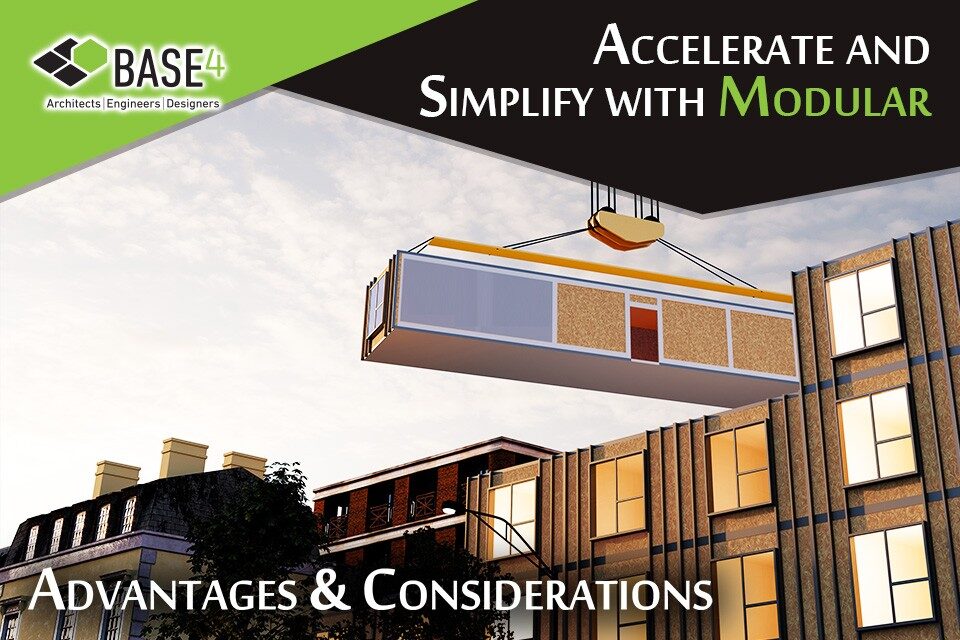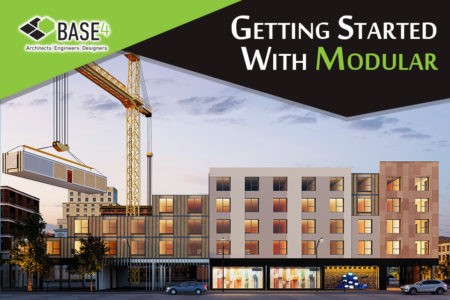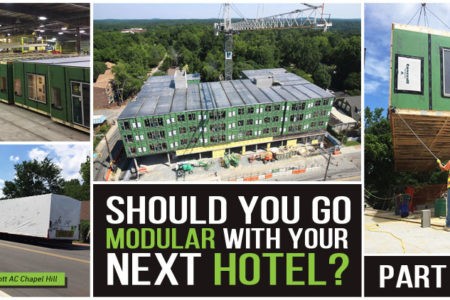How Can Modular Guestrooms Speed and Simplify Your Building Process?
Volumetric modular construction can do wonders for the building process. Prefab construcion is especially conducive for structures with commonly seen recurring units (e.g., guest or resident bedrooms). So what sets modular rooms apart? Let’s dive into it!
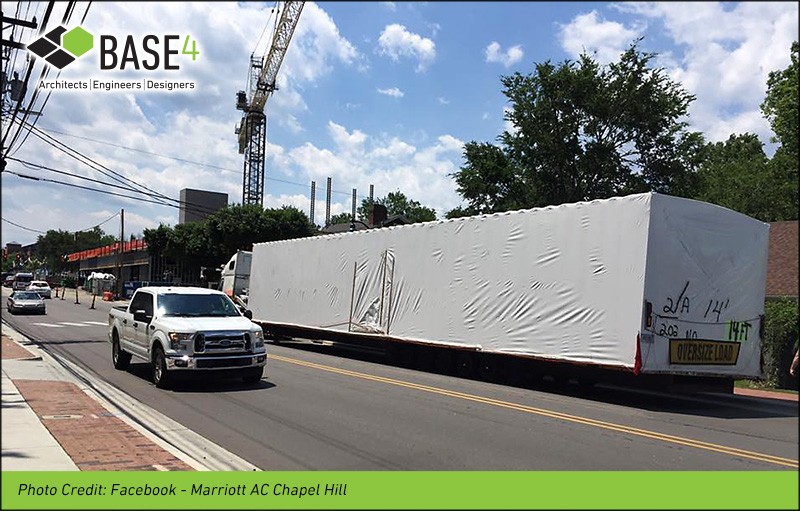
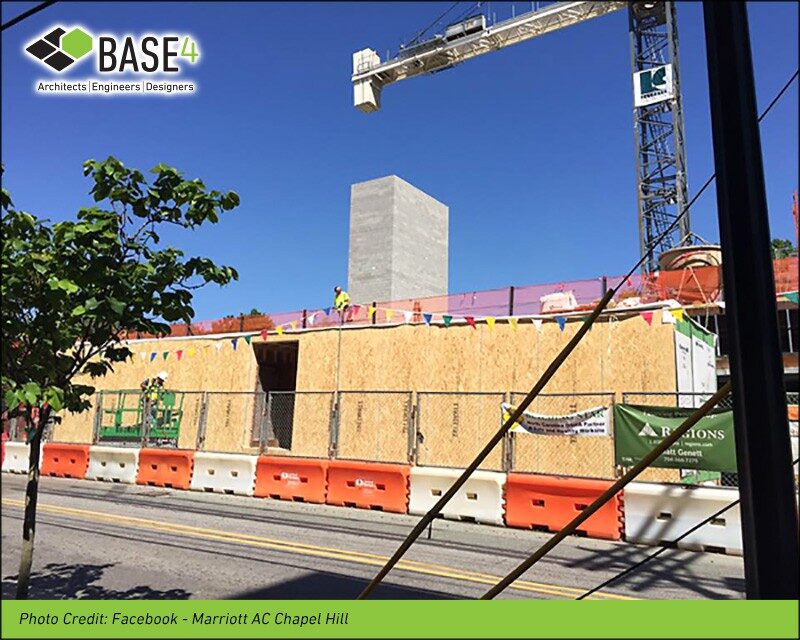
The Basics
- Most common (volumetric) modular units are repetitive blocks (e.g. rooms) produced off-site in a factory—with nearly fully-furnished interiors.
- A standard unit includes two rooms separated by a corridor. Bays can also be fabricated into separate units.
- Modular manufacturers design and equip individual modules with all necessary items, including everything from the bed mattress to the wall arts.
- Each module is engineered independently and built to resist the rigors of transportation.
- After production and shipment, modular units arrive at the prepared site.
- Typically, modular units are placed on a traditionally framed ground floor steel or concrete podium structure and start at the second floor rather than directly on a slab on grade. (This allows access to the bottom of the modular units after they are set).
- Once joined to the structure, final installation of electrical, plumbing, mechanical, and structural connections occur in the corridor.
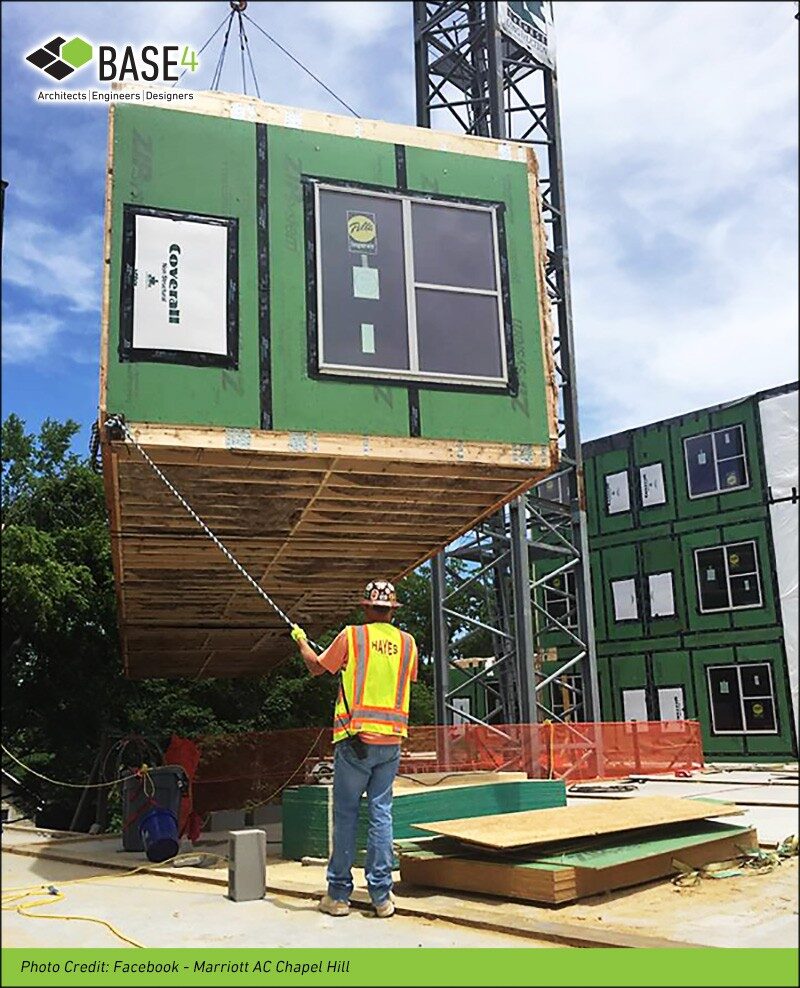
The Advantages:
- Reduced Construction Schedule: Modular units can be produced off-site simultaneously as the foundation and podium come together onsite. As a result, modular construction can typically reduce build-time for a standard four- to five-story, 100-unit project, by three to six months when compared to traditional construction methods.
- Higher Product Quality: A production line assembly helps maintain precision and high quality in a controlled environment, in accordance with developed standards.
- Less Disruption and Cleaner Sites: Minimal on-site construction and fabrication reduces the number of trucks, personnel, and equipment, minimizing on-site noise, dust, and pollution. This also means fewer disruptions to surrounding traffic due to lane closures for deliveries and reduced parking demand for on-site workers.
- Increased Sound Insulation: All rooms are separated by a double-wall with a one-inch air gap, leading to higher sound ratings.
- Safer Work Environment: The modular construction site is a less chaotic than traditional build ones because fewer workers are needed for installation and site work. The site only requires deliveries for fixtures, finishes and equipment (FF&E), reducing the number of boxes stacked on site and making the site less hazardous to fire.
- Inspections: While local inspectors will still be responsible for many aspects of a project (e.g. ground floor areas, rooms corridors, etc.), the modular approach will reduce the number of local inspections required as modular units are inspected at the factory.
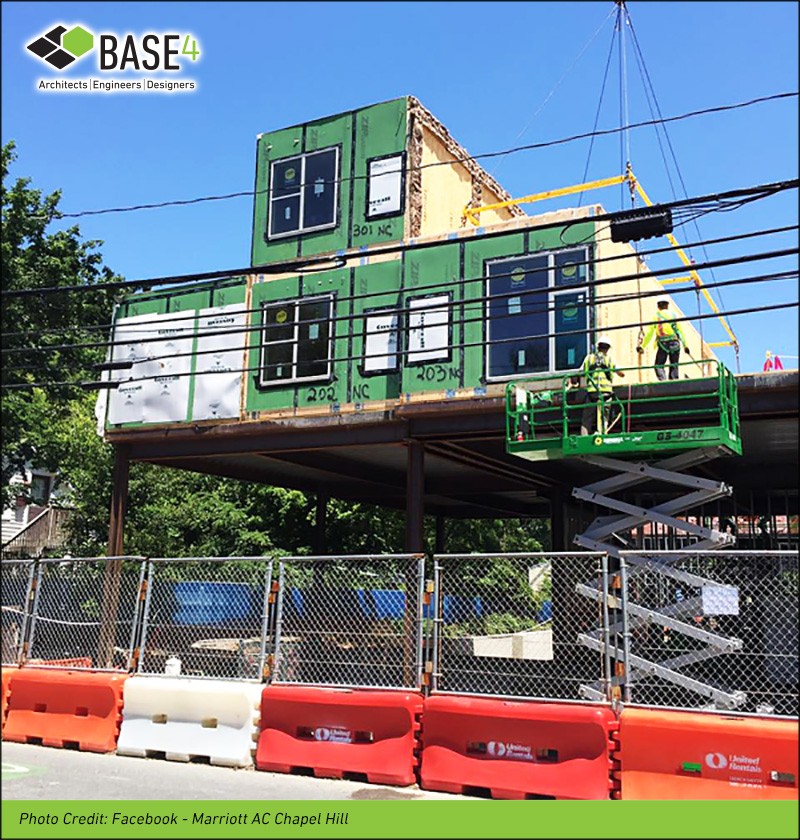
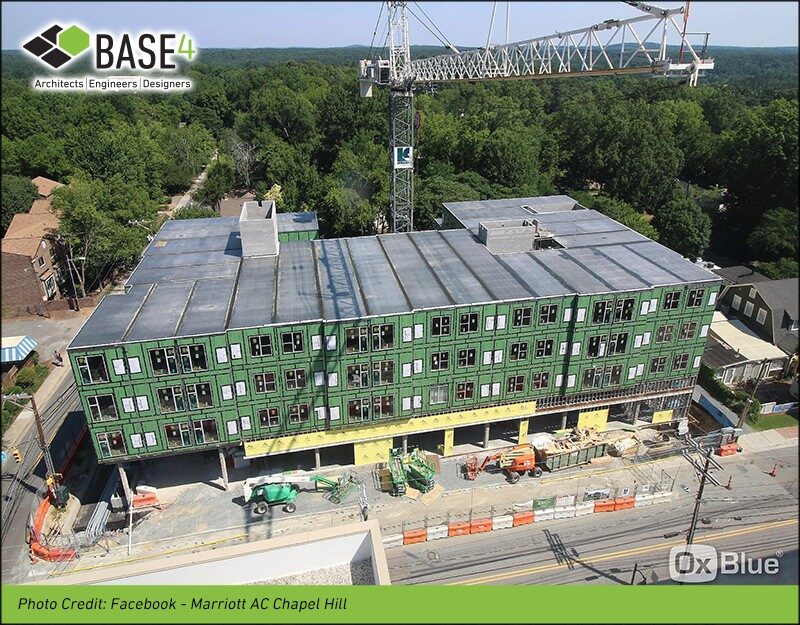
Considerations:
- Education & Scope Issues: Since modular construction is relatively new, many GCs, suppliers, subcontractors, lenders, and city representatives will need education on how this construction type is different from a traditional project.
- Procurement: All FF&E must be delivered before the modular factory starts unit production. Additionally, significant décor changes cannot be made as these items would have already been purchased.
- Production Limitations: Room sizes for modular projects are limited. Due to shipping constraints, each unit cannot be more than 14 to 16 feet wide, 60 to 75 feet long, and 11-feet high.
- Upfront Financing: Since factory production process is one of the main parts of the project, 60-70% of your entire construction cost is needed upfront to purchase the modules. Lenders might need education to better understand this process.
- Inspections: Because modular units arrive already inspected, you likely will need to alert local inspectors of the change of their scope.
Modular construction can be a great fit, especially when you educate your team to its advantages. Careful coordination between the owner/GC and these parties is important to discern everyone’s role to ensure project success. Fortunately for you, we take care of that.
Next week we discuss Modular FAQ. In the meantime, reach out to us for your questions!

Thank you,
Blair Hildahl
Modz4 Principal
608.304.5228

